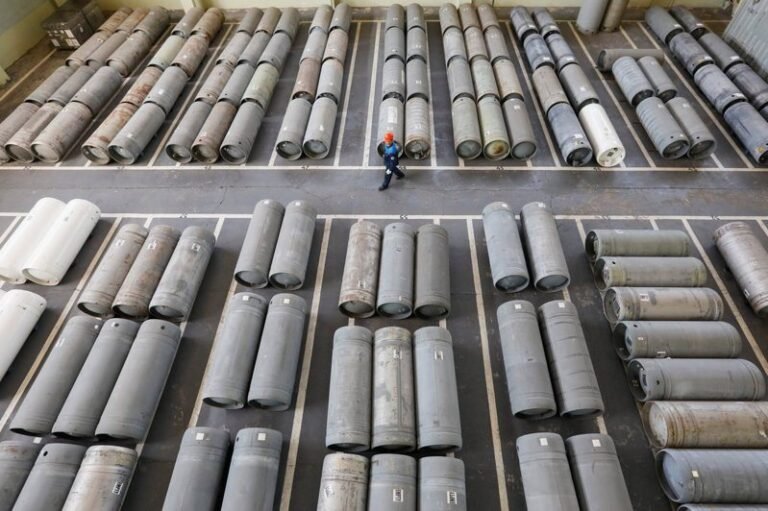
A British study reported that despite efforts by Europe and the United States to reduce their involvement in the nuclear industrythe supply chainCorrectRussiaNot only does Russia still maintain its lead in the market, but there are signs that China has ambitions to use various countries’ import restrictions on Russian-made products to expand its international market area.
Noting that the Russian nuclear industry plays a key role in wars of aggression and the military industry supply chain, and generates considerable revenue for Moscow authorities, the countries in the study jointly impose strict import restrictions and sanctions on Russians. The need has been stated. Related companies and their products and services.
Furthermore, countries should strengthen their own or their allies and partners’ uranium enrichment and nuclear fuel production capabilities to reduce dependence on Russia. The EU has not yet imposed any sanctions on Russia’s state-owned nuclear company Rosatom, which also reflects Europe’s dependency dilemma.
The report also warns that countries should avoid dependence on China.
The British think tank “Royal United Military Institute” (RUSI) recently released a report analyzing the current state and trends of international trade in Russian-produced enriched uranium.
According to the report, Rosatom remains the largest supplier of enriched uranium in the world. The United Nations Commodity Trade Statistics Database (UN Comtrade) and other databases show that countries around the world are projected to import approximately US$1.29 billion worth of enriched uranium from Russia in 2021, and import figures in 2022 and 2023 are expected to reach 2.03 billion US dollars, respectively. There will be billions. The US dollar, at US$2.7 billion, shows an upward trend.
The latest report on the international nuclear fuel market, released in September last year by the World Nuclear Energy Association (WNA), reported that Russia controls almost half of the world’s enriched uranium production capacity.
International uranium enrichment services are virtually monopolized by four major companies: Rosatom, China National Nuclear Corporation (CNNC), France-based Orano, and the British-Dutch-GermanyGroup Eurenko. Some companies also have control over nuclear fuel production.
This market reality allows Russia to threaten to restrict exports of enriched uranium. Some experts assess that once Russia disrupts supplies, the United States may also face challenges in ensuring the continued normal operation of nuclear power facilities.
However, after Russia launched a full-scale invasion of Ukraine in February 2022, some Western countries and their allies and partners began taking limited measures to attempt to limit Russia’s nuclear industry revenues. For example, the United Kingdom and the United States sanctioned some senior Rosatom officials. The United Kingdom bans imports in July 2022. A new tariff of 35% has been imposed on radioactive chemical elements and isotopes from Russia.
The report notes that in response to the new situation, Russia may try to maintain or even expand its exports of enriched uranium through an “export diversion” strategy.
The so-called transfer strategy means that companies like Rosatom can export enriched uranium to countries that are still willing to trade to meet the needs of domestic nuclear power facilities in that country; The importing country can then export the enriched uranium produced to other countries and the intention is to use the respective countries to reduce their dependence on Russia, avoid financing the Russian war machine, and capture the market.
Similar strategies have been seen in how Russia responded to restrictions on crude oil exports. For example, Germany will expand imports of refined oil products from India in 2023, and as early as 2022, India will become one of the major importers of Russian crude oil.
Center